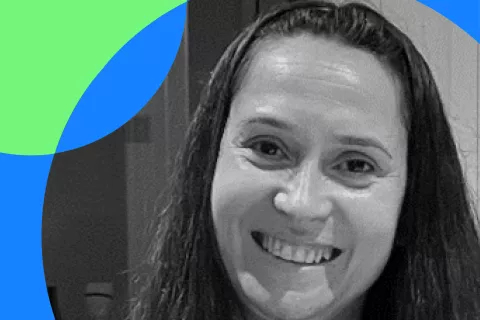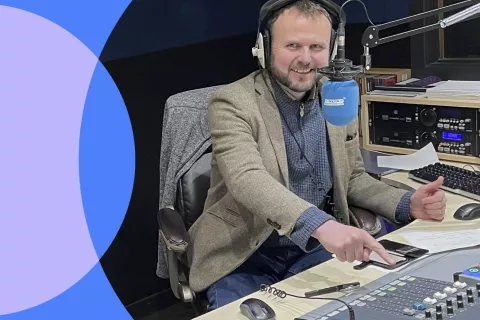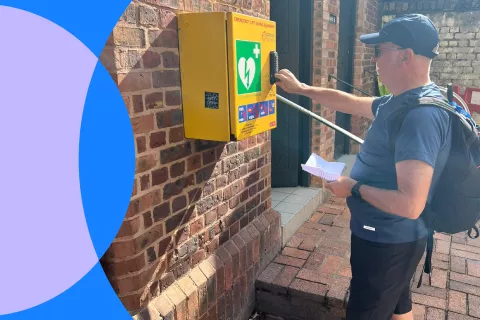According to the World Health Organization, there are over 1 billion people living with disabilities worldwide. Further, there is a significant skew in the rates of employment for people with disability, with 52.8% of men with disability being employed, while only 19.6% of women with a disability are employed.
Kat Jennings joined CityFibre three years ago as a Quantity Surveyor and was promoted a year ago to Senior Quantity Surveyor. Kat has a hearing impairment and wears hearing aids in both ears. She also has tinnitus which further compounds her hearing loss.
“When looking for an employer, it has been quite difficult at times because it’s not a visual disability, people don’t look at me and think, ‘she’s got hearing aids’. I have had some bad experiences in the past with employers requesting proof of my disabilities.
When CityFibre were organizing my first interview, I made them aware of my hearing impairment. They ensured we were able to complete this face to face instead of over the phone, because I sometimes struggle with the telephone. And when I started, they got Occupational Health involved immediately to ensure I had everything I needed. They were so accommodating, absolutely brilliant.”
Tell us about a time when you felt truly supported and/or included in your workplace:
“My team are incredible and always make me feel like part of the team when it comes to meetings. They always leave a seat at the front of the room, we joke I am like the teacher’s pet, but obviously it’s because I wear hearing aids, and this allows me to participate better. They ensure they talk to me face to face. And if they’re trying to talk to me from behind, they will always tap my shoulder.
They don’t rush, they don’t talk over each other and ensure I am always part of the conversation. They have never asked about my disability, and accept me for who I am. They see how others treat me and treat me the same. It is great because I’m not constantly having to explain myself or ask them to speak to me in a different way.
Especially during COVID the team have been incredible and understanding. When required I lip read, especially if I’m in a noisy area. The wider business has been so supportive in pulling their mask down if I’m struggling to hear, even at a distance so I can still understand what they’re saying. I know people want to and need to wear masks, but the fact that people could notice that I was struggling and were willing to lower their mask (sometimes even without me asking), really means so much to me.
When we go to big events, CityFibre always ask what requirements I need and if I need any support. They always accommodate my needs, and it’s never been an inconvenience or a concern.
I’ve never felt different. I’ve never felt left out. I’ve never felt like I have something wrong with me. I don’t have to wear this big banner saying, “I’m disabled”, I’m just part of the team and they make me feel included. I’m sure the management team are doing a lot in the background to make sure that people are aware and are educated. Sometimes people treat you differently when they know that you have a disability, so it’s great that I have never been made to feel that way at CityFibre.
Induction loops are a sound system where a loop of wire circles an area in a building, office or meeting room, and produces an electromagnetic signal that is received directly by hearing aids to better pick up the spoken word.
What could companies do to help people with disabilities thrive in their careers?
I think understanding the disabilities is really, really important, especially with hearing impairments and people who are deaf. It’s imperative to understand what we need, like induction loops in meeting rooms, personal induction loops, requirements for the telephones, overhead headphones for meetings, or understanding why we don’t wear headphones if they’re on a Teams call.
If everyone had an induction loop in all of their meeting rooms and on a reception desk, things would be a lot easier for people to communicate. When thinking of desk layouts for example, I think it’s important for employers to think about how their layout may impact hearing and communication styles for their employees with hearing impairments.
Sign language is so important too. I’m not saying that everyone needs to learn sign language. But if we all had a bit more understanding and a bit more appreciation for these small things, it would make things a lot easier.
One of our colleagues at CityFibre did a four-week introduction to British Sign Language. It was great that there are other people in the business who want to learn. Knowing that there were people trying to learn it with me who have full hearing meant a lot to me.”
To learn more about opportunities at CityFibre and apply for one of our open positions, click here.



